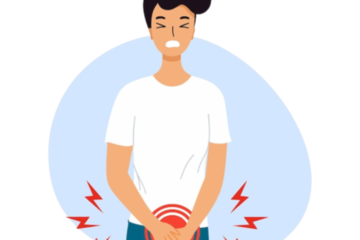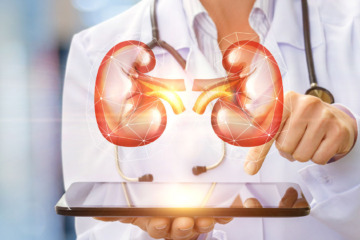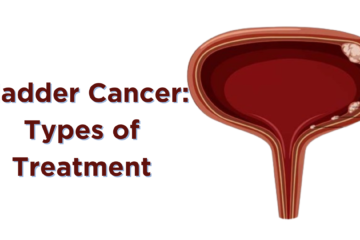
Kidney cancer is a type of cancer that begins in the cells of the kidney. It is a serious disease that can have a significant impact on a person’s health and well-being. The kidneys are an essential organ that plays a crucial role in filtering waste products from the blood and regulating fluid balance in the body. Kidney cancer can develop in one or both kidneys, and it is often detected at an advanced stage, making it more difficult to treat. However, early detection and treatment can significantly increase the chances of a successful outcome. In this blog, we will discuss kidney cancer in more detail, including its causes, symptoms, diagnosis, and treatment options, as well as what to expect during recovery. We will also provide helpful tips and resources for those who have been diagnosed with kidney cancer or know someone who has.
Symptoms
Kidney cancer can be asymptomatic in the early stages, meaning there may be no symptoms or signs until the cancer has progressed. However, as the cancer grows, the following symptoms may appear:
- Blood in the urine (hematuria): Blood may appear pink, red, or cola-coloured.
- Pain in the side or back: Pain may not go away and can be felt on one side of the body.
- A lump or mass in the abdomen: A lump may be felt in the abdomen or side of the body.
- Fatigue: Feeling very tired or weak.
- Unexplained weight loss: Losing weight without trying.
- Loss of appetite: Not feeling hungry or having a decreased desire to eat.
- Anemia: Low levels of red blood cells, which can cause fatigue, shortness of breath, and pale skin.
These symptoms can be caused by other conditions as well. So it’s essential to see a doctor if any of these symptoms persist or worsen over time.
Causes
The exact cause of kidney cancer is not known, but there are several risk factors that increase a person’s likelihood of developing the disease. These include:
- Age: Kidney cancer is more common in people over the age of 60.
- Gender: Men are more likely to develop kidney cancer than women.
- Smoking: Smoking tobacco increases the risk of kidney cancer.
- Obesity: Being overweight or obese increases the risk of kidney cancer.
- High blood pressure: People with high blood pressure are more likely to develop kidney cancer.
- Family history: A family history of kidney cancer or other types of cancer can increase the risk.
- Inherited conditions: Certain inherited genetic conditions, such as Von Hippel-Lindau (VHL) disease, Birt-Hogg-Dubé (BHD) syndrome, and hereditary papillary renal cell carcinoma (HPRCC), increase the risk of kidney cancer.
- Exposure to certain chemicals: Exposure to certain chemicals such as cadmium, asbestos, and organic solvents may increase the risk of kidney cancer.
It is important to note that having one or more of these risk factors does not necessarily mean that a person will develop kidney cancer. However, it is essential to be aware of these risk factors and take steps to reduce the risk whenever possible.
Treatment options for kidney cancer
The treatment for kidney cancer depends on various factors such as the size and location of the tumour, how far it has spread, and the overall health of the patient. The main treatments for kidney cancer are surgery, radiation therapy, and chemotherapy. Let’s take a closer look at each of these treatment options.
- Surgery
Surgery is the most common treatment for kidney cancer. The goal of surgery is to remove the tumour and any surrounding tissue that may contain cancer cells. The type of surgery used depends on the size and location of the tumour. In some cases, the entire kidney may need to be removed. This is known as a nephrectomy. In other cases, only the part of the kidney containing the tumour may need to be removed. This is known as a partial nephrectomy.
- Radiation therapy
Radiation therapy uses high-energy radiation to kill cancer cells. It is not commonly used to treat kidney cancer but may be used in some cases. Radiation therapy may be used to relieve symptoms such as pain or to shrink a tumour before surgery.
- Chemotherapy
Chemotherapy uses drugs to kill cancer cells. It is not commonly used to treat kidney cancer but may be used in some cases. Chemotherapy may be used to treat kidney cancer that has spread to other parts of the body.
- Immunotherapy
Immunotherapy is a type of cancer treatment that works by helping the immune system to fight cancer. Immunotherapy drugs are used to help the body’s immune system to identify and attack cancer cells.
- Targeted therapy
Targeted therapy is a type of cancer treatment that uses drugs to target specific molecules or genes that are involved in the growth and spread of cancer cells.
Recovery from kidney cancer treatment
The recovery from treatment varies depending on the type of treatment used. In general, recovery from surgery takes several weeks. During this time, the patient may experience pain and discomfort. The patient may need to take pain medications and may need to limit activities that could put stress on the surgical site. In some cases, the patient may need to stay in the hospital for several days.
Recovery from radiation therapy and chemotherapy is generally less complicated than recovery from surgery. The patient may experience side effects such as fatigue, nausea, and loss of appetite. These side effects usually go away once treatment is completed.
Recovery from immunotherapy and targeted therapy is generally easier than recovery from chemotherapy. The patient may experience side effects such as fatigue, fever, and muscle aches. These side effects usually go away once treatment is completed.
What to expect during recovery
During recovery from kidney cancer treatment, the patient may need to make some lifestyle changes. These changes may include:
- Following a healthy diet: Eating a healthy diet can help the body to heal and recover from treatment.
- Getting enough rest: Rest is important for healing and recovery.
- Staying hydrated: Drinking plenty of fluids can help to prevent dehydration, which can be a problem during treatment.
- Avoiding strenuous activities: Strenuous activities can put stress on the body and slow down the healing process.
- Following up with doctors: It is important to follow up with doctors to monitor for any signs of recurrence and to manage any side effects of treatment.
Conclusion
In conclusion, it is important to be aware of the symptoms and risk factors associated to ensure early detection and treatment. Recovery from kidney cancer can be challenging, but with the right treatment and support, many people are able to resume their normal activities and enjoy a good quality of life. If you or someone you know has been diagnosed with kidney cancer, it’s important to seek support from healthcare professionals, family, and friends. Remember that early detection and treatment can improve the chances of successful treatment and a positive outcome.
Dr. Sumit Sharma is an experienced urologist, andrologist, and kidney transplant surgeon with over 20 years of clinical experience. He is the founder of the Department of Urology at multiple hospitals in Gurgaon and has established successful kidney transplant programs across the city.
Here are some frequently asked questions:
Q. How fast does kidney cancer spread?
The rate at which kidney cancer spreads can vary depending on several factors, such as the type and stage of cancer, the person’s overall health, and their response to treatment.
Generally, kidney cancer tends to grow slowly at first and may not cause any noticeable symptoms in the early stages. However, as the cancer grows, it can spread to nearby tissues and organs, such as the lymph nodes, adrenal glands, and other parts of the body. Kidney cancer can also metastasize, or spread to other parts of the body, such as the lungs, bones, liver, or brain.
Q. Who is the best Urologist in Gurgaon?
Dr. Sumit Sharma is an experienced urologist, andrologist, and kidney transplant surgeon with over 20 years of clinical experience. He is the founder of the Department of Urology at multiple hospitals in Gurgaon and has established successful kidney transplant programs across the city.
Q. Should I wait for kidney surgery or do it right away?
The decision to undergo kidney surgery for kidney cancer is a complex one that should be made in consultation with your healthcare provider. In general, the timing of the surgery will depend on several factors, including the size and stage of the tumor, your overall health, and the potential risks and benefits of the surgery.
In many cases, surgery is the first-line treatment for kidney cancer, and it is often recommended as soon as possible. The reason for this is that kidney cancer can grow and spread quickly, and delaying surgery may allow the cancer to progress, making it more difficult to treat.
However, in some cases, it may be appropriate to delay surgery, particularly if the tumor is small and slow-growing, and there is no evidence of metastasis or spread to other parts of the body. In such cases, your healthcare provider may recommend active surveillance or monitoring with periodic imaging tests, such as CT scans or MRIs, to assess the growth and spread of the tumor.
Ultimately, the decision to undergo kidney surgery and the timing of the surgery will depend on your individual situation and should be made in consultation with your healthcare provider. They will consider all the relevant factors and work with you to develop a personalized treatment plan that is tailored to your specific needs and preferences.



